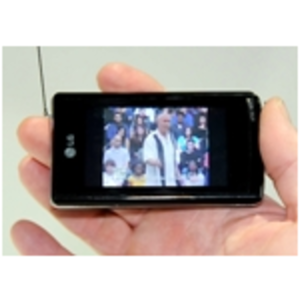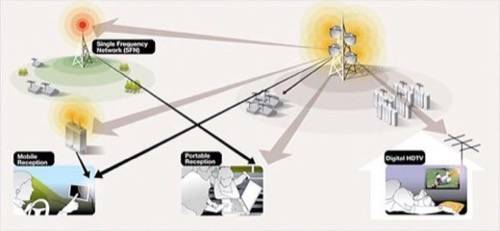The Mobile Content Venture (MCV), a joint effort by U.S. broadcasters, recently announced its roadmap for its mobile TV network. The roll-out plans to have 20 U.S. markets covered by the end of 2011. And we should see mobile TV-compatible devices by the second half of 2011.

Could it be true? A real, broadcaster-led, freemium mobile TV service is launching next year?
The consortium includes 12 broadcasters: Fox, NBC, Belo, Cox Media, E.W. Scripps, Gannett Broadcasting, Hearst Television, ION Television, Media General, Meredith, Post-Newsweek Stations and Raycom Media.
The markets MCV has announced are New York, Los Angeles, Chicago, Philadelphia, San Francisco, Dallas, Washington D.C., Atlanta, Houston, Detroit, Tampa, Phoenix, Minneapolis, Orlando, Portland, Cincinnati, Greenville, West Palm Beach, Birmingham and Knoxville.
About MCV
You may remember hearing something about a new mobile TV initiative earlier this year from a group calling itself Pearl (Pearl Mobile DTV Company, LLC). That’s actually the same group of broadcasters, it has just changed its name.
In April, MCV, then called Pearl, announced its plans to re-use broadcast spectrum for mobile digital TV services to provide live and on-demand video, sports and entertainment programming and local and national news. The broadcast partners are providing the spectrum, marketing resources and capital to the venture.
As technology blog GigaOm described it at the time, the decision to re-use spectrum was due to a “use it or lose it” push from the FCC, which was attempting to reclaim 120 MHz of spectrum for mobile broadband services. The broadcasters decided instead to keep the spectrum and launch the mobile TV venture, saying that it would lead to additional revenue streams and would help alleviate the strain on carriers’ mobile networks, already clogged by delivering mobile video.

The Burden of Mobile Video
Mobile video usage has grown substantially over recent months, contributing heavily to the mobile data traffic surge. In February of this year, for example, Cisco pegged mobile data traffic at 40 exabytes for 2010 (one exabyte = 1 billion gigabytes), much of it due to mobile video. In fact, Cisco said that by 2014, 66% of all mobile data traffic would be video.
This morning, new data from video site MeFeedia again confirmed this trend, showing an increase in video traffic in 2010 – up 60% this year, it’s saying. iPhone, Android and iPad devices have contributed to this growth, with traffic up 22% since April on iPhone, up 200% on Android and up 325% on iPad.
Is MCV Really Happening?
Consumers may wonder whether or not this announcement means a whole lot at this point. Burned by previous attempts at mobile TV efforts (see, for example, Qualcomm’s now closing FLO TV service), there’s a bit of “I’ll believe it when I see it” sentiment out there these days regarding mobile TV ventures.
For what it’s worth, the analysts at iSuppli are somewhat bullish on the possibilities for MCV, citing three main aspects to the service that provide it with a better chance than prior efforts. First, the technology it uses (ATSC M/H) is cheaper than others (DVB-H or MediaFLO, the latter which was used by Qualcomm) because it leverages existing infrastructure. Second, the venture is broadcaster-led, meaning it will have a good content portfolio and will be better designed to match up with consumers’ viewing habits and exceptions. And third, the technology (ASTC M/H) is backed by handset makers LG and Samsung, which will help bring devices to market.
iSuppli also notes that MCV is likely to go for a business model involving both free and paid-for content to help push consumer adoption.
That being said, there are also several challenges MCV must overcome. It needs to get operator commitment to integrate with cellular networks, and it needs to be able to offer handset subsidies, mobile billing and produce nationwide marketing campaigns. In fact, mobile operator support for MCV is key, without it, the initiative will probably not survive. So for now, cautious excitement only – but when you hear MCV announcing operator partners, you then have our permission to shout “hooray for mobile TV!”
Image credits: DVICE, HotHardware

















